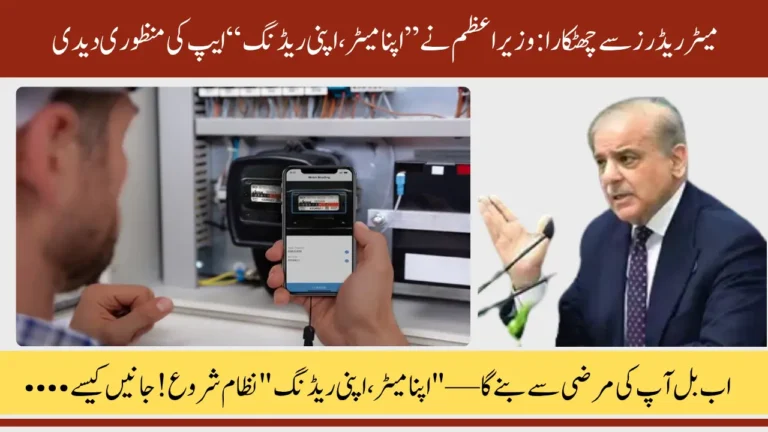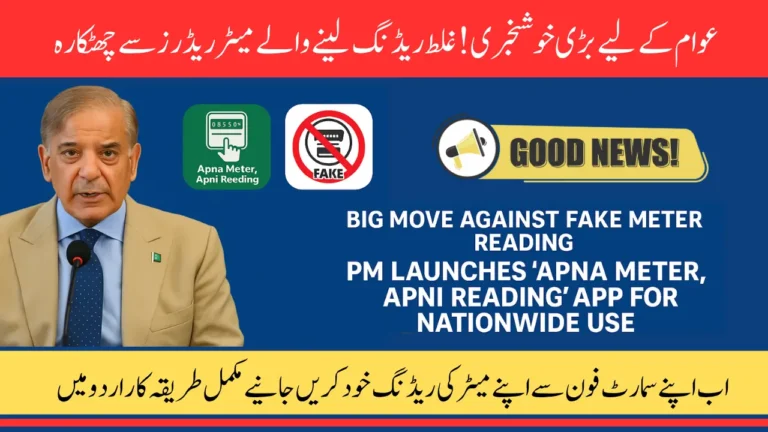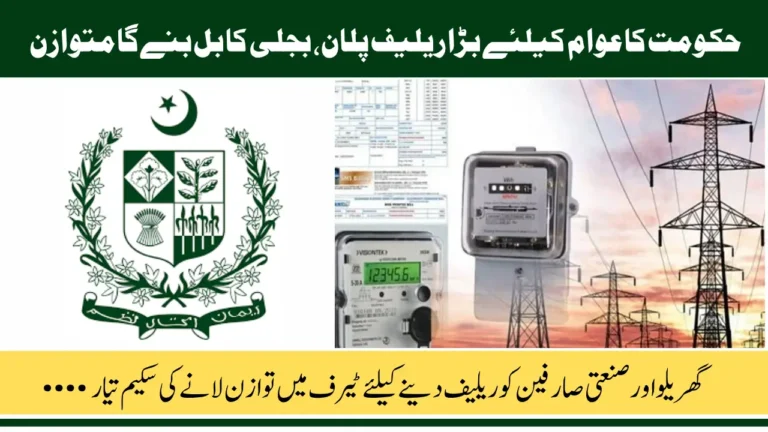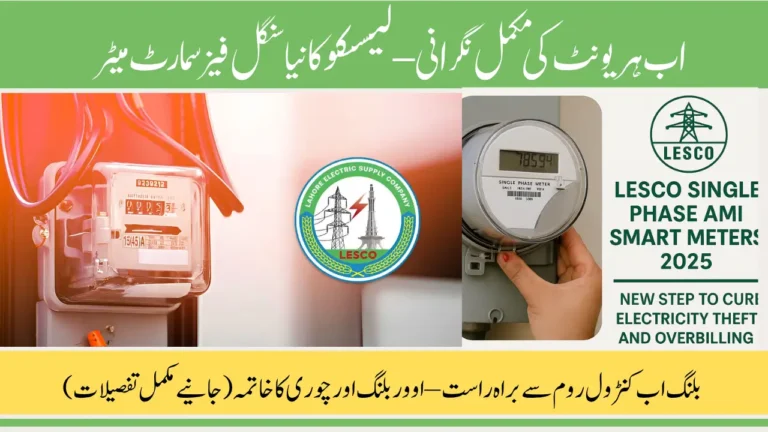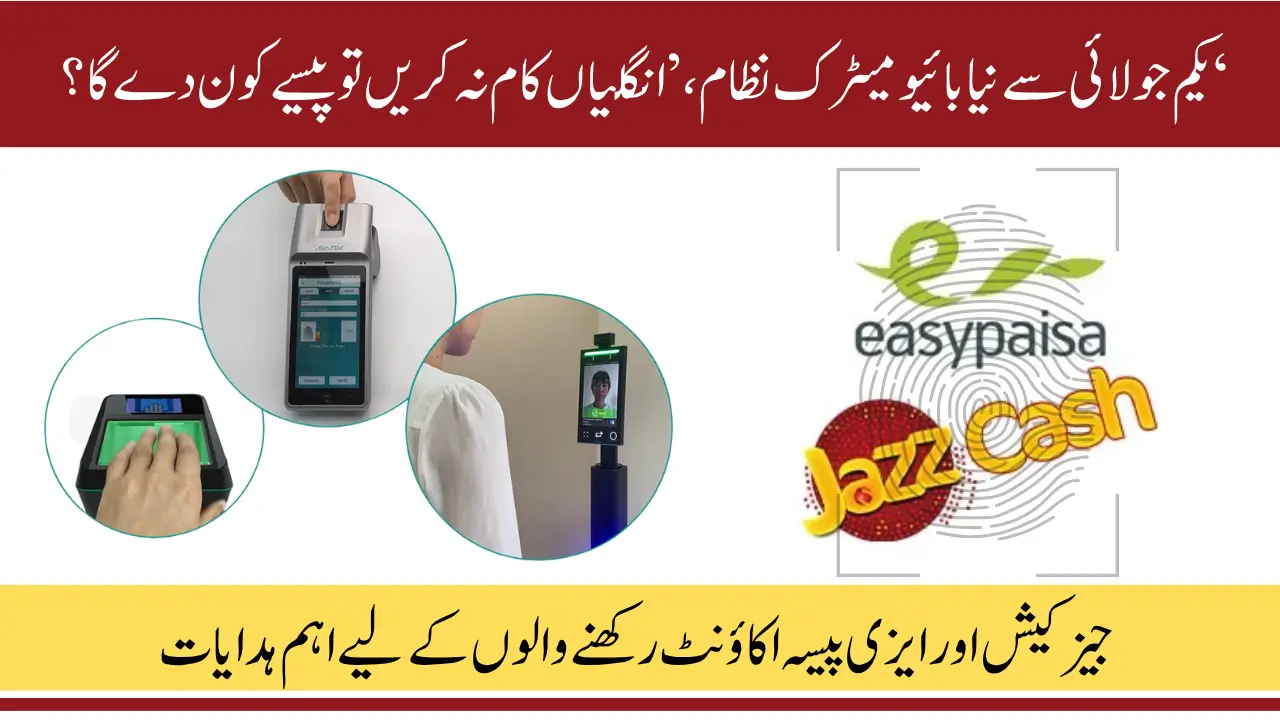
Biometric Verification Problem Easypaisa JazzCash
Biometric Verification Problem Easypaisa JazzCash July 2025: Starting July 1, 2025, the Government of Pakistan is rolling out a mandatory biometric verification system for all physical cash transactions done through Easypaisa and JazzCash. This change is meant to curb illegal money transfers and money laundering. But for millions of poor, elderly, and digitally unaware citizens, this rule is creating more fear than relief.
Imagine Abdul Ghafoor Khan, a 65-year-old laborer in Karachi, visiting an Easypaisa shop to withdraw funds sent by his son. When his fingerprints fail to register on the biometric machine, the shopkeeper tells him kindly, “Next time, no thumb match, no money.” Ghafoor sighs, looking at his calloused fingers and says, “These are the same fingers I worked with all my life and now, they don’t recognize me?”
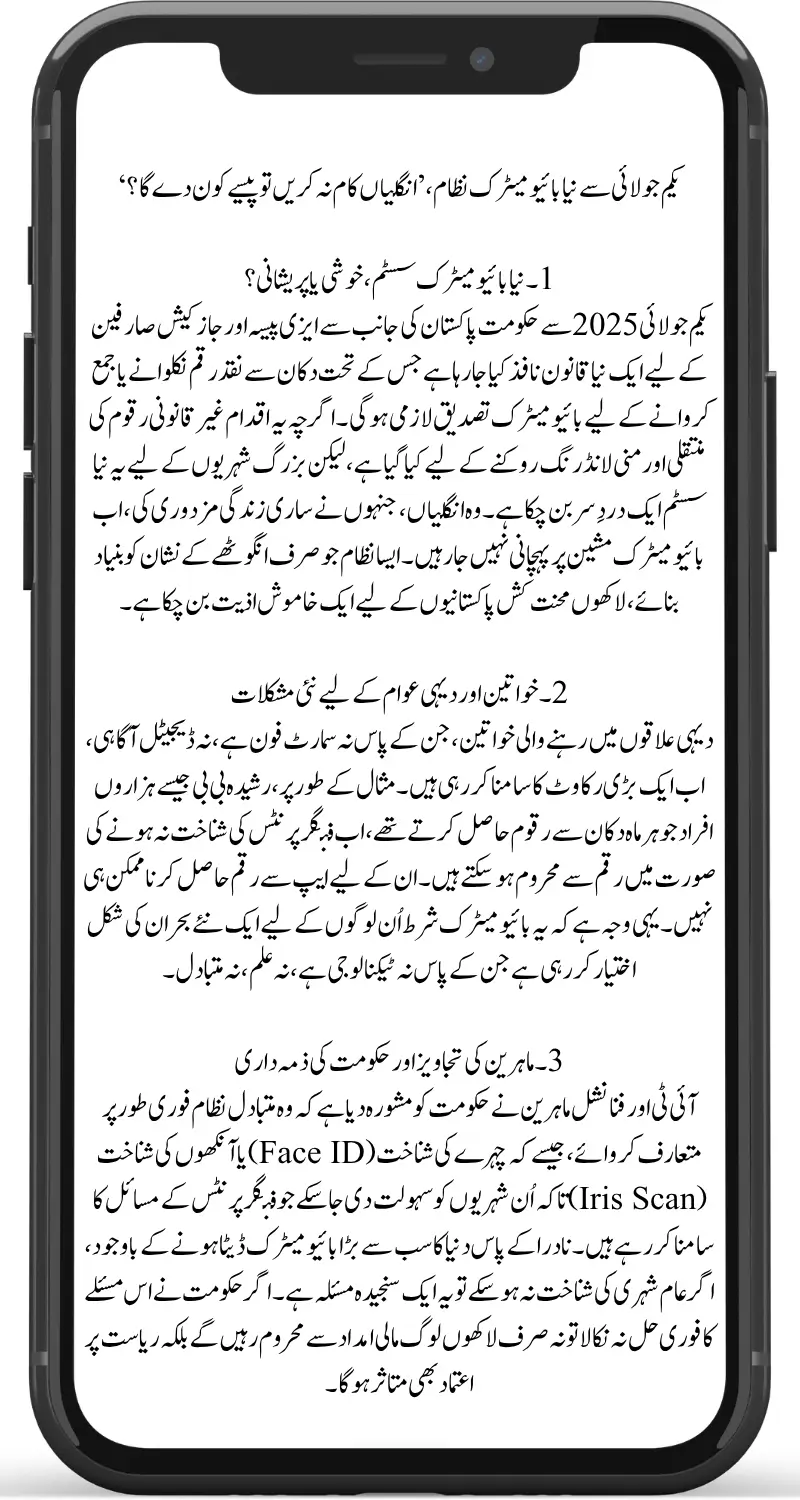
This article highlights the urgent problems that this new system presents, especially for vulnerable populations. First of all we explore what the new policy means, who it affects, and what the government must do before this creates a national crisis.
People Also Read: Govt Launches 80 Million Inverter Fans Scheme to Cut Electricity Bills and Save 5000MW Power
How the New Biometric Policy Works And Who It Affects
From July 1, 2025:
- All in-person transactions (cash deposits and withdrawals) at Easypaisa and JazzCash shops will require biometric verification.
- Mobile app transactions (within the Easypaisa or JazzCash app) will not require biometrics.
- The policy applies to every user in Pakistan, especially those receiving remittances from family.
This change has been mandated by the State Bank of Pakistan (SBP) to enhance financial integrity and prevent fraud. However, it fails to consider one major issue what about people whose fingerprints no longer work?
Biometric Barriers for Elderly and Poor
Experts point out that age-related skin changes often make fingerprint matching impossible. After 60, skin ridges become faint, making biometric scanners fail more frequently. In winter, it becomes worse. Many elderly, especially those collecting pensions or welfare payments, face humiliation when their fingerprints fail to scan.
Dr. Nauman Syed, an IT expert, supports biometric security but stresses the need for flexibility. “If fingerprints fail, citizens should be offered face recognition or retina scan options.”
Similarly, banking expert Ibrahim Amin notes that while the State Bank’s goal of stopping illegal transactions is valid, the system must not exclude vulnerable populations. He recommends that the government introduce alternative methods before rollout.
People Also Read: FESCO Confirms Area Wise Power Suspension on June 25 Full Details Inside
Case Study: Abdul Ghafoor’s Identity Denied
Abdul Ghafoor is not alone. Across Pakistan, thousands of elderly citizens and daily wage laborers are discovering their fingerprints no longer match the NADRA database due to worn skin, age, or injury. In many rural and urban areas, people work with chemicals, bricks, tools, and machinery all of which damage the skin.
These people, who already struggle with poverty, will now lose access to essential financial services because of a technical limitation. Ghafoor received the money this time. But was told he wouldn’t next time if the thumbprint didn’t work. No app. No backup. Just rejection.
Case Study: Rasheeda Bibi and the Digital Divide
Rasheeda Bibi, a 50-year-old woman in Qasimabad, Hyderabad, receives money every month from her son who works in Karachi. She has a basic phone no internet, no apps. Her only way to get money is from the local Easypaisa shop.
“If my thumbs don’t work, who will give me money?” she asks.
She doesn’t know how to use mobile banking. She can’t afford a smartphone. For her and millions of other women, the only option is now at risk.
People Also Read: GEPCO Bill Calculator By Consumed Units Latest Update June-July 2025
What NADRA Is Doing About It?
According to a former NADRA officer, the biggest issue is age-related skin change. After 60, the skin’s ridges fade, making it hard for scanners to detect.
NADRA holds the largest biometric database in the world, yet even its system fails when people need it most for pensions, identity renewals, or cash withdrawals. This failure is not just technical it’s emotional, social, and economic.
A NADRA spokesperson recently stated that they’ve expanded the definition of biometric to include:
- Fingerprints
- Face Recognition
- Iris Scanning
But unless these methods are practically available in every Easypaisa/JazzCash outlet, they are of no use to the common citizen.
People Also Read: Chairman WAPDA Visits Dasu Hydropower Project 2027 Power Generation on Track
Risk to Millions Financial Exclusion Is Real
If this policy is applied without backup plans:
- Millions of elderly and poor will be denied access to funds
- Widows, women, and disabled persons will face daily humiliation
- Pensioners may not be able to verify their ID
- Trust in the digital payment system will erode
This isn’t just about money it’s about dignity.
What Can Be Done Action Needed Before July
- Introduce face/retina scans as biometric alternatives at all payment points
- Provide training and digital access to elderly users
- Allow manual override with CNIC and OTP verification
- Set up helplines and complaint resolution desks at Easypaisa/JazzCash shops
- Roll out this policy in phases, starting with pilot projects in urban areas
Key Points of the New Biometric Policy
| Aspect | Details |
| Policy Start Date | July 1, 2025 |
| Applies To | All in-person Easypaisa/JazzCash cash deposits or withdrawals |
| Not Required For | App-based mobile transfers |
| Main Verification Method | Fingerprints |
| Alternative Options | Iris scan, Face recognition (Not yet implemented) |
| Affected Populations | Elderly, laborers, poor, women, digitally unaware citizens |
| Official Reason | Prevent money laundering, enhance financial integrity |
| Risk | Financial exclusion, delays, humiliation, system failure |
FAQs
Who will be affected by the new biometric rule?
Anyone who does in-person transactions at Easypaisa or JazzCash shops, especially elderly people with worn fingerprints.
What should I do if my fingerprints don’t work?
You should visit NADRA to update your biometric data, and request alternatives like face scan.
Can I avoid biometric if I use the app?
Yes. App-based transfers on mobile phones do not require biometric verification.
Is NADRA updating its system to support alternatives?
Yes, but these updates are not widely available yet at the retail level.
What if I can’t use an app and my fingerprint fails?
As of now, there’s no guaranteed solution. This is why public demand for alternatives is crucial.
People Also Read: Wapda Helpline Number 2025 Complete Guide to Solve Bill Issues and Electricity Complaints Fast
Conclusion
This new policy may look good on paper but its ground impact could be devastating. When a system relies solely on thumbprints without offering flexible options, it denies people their dignity. For Abdul Ghafoor, Rasheeda Bibi, and millions of others, this isn’t about technology, it’s about survival.
If the State Bank and NADRA do not act fast, July 1 will not mark the rise of security, but the fall of trust. A modern system must be inclusive, or it is not truly modern. Because if your own hands can’t prove who you are, who will?

